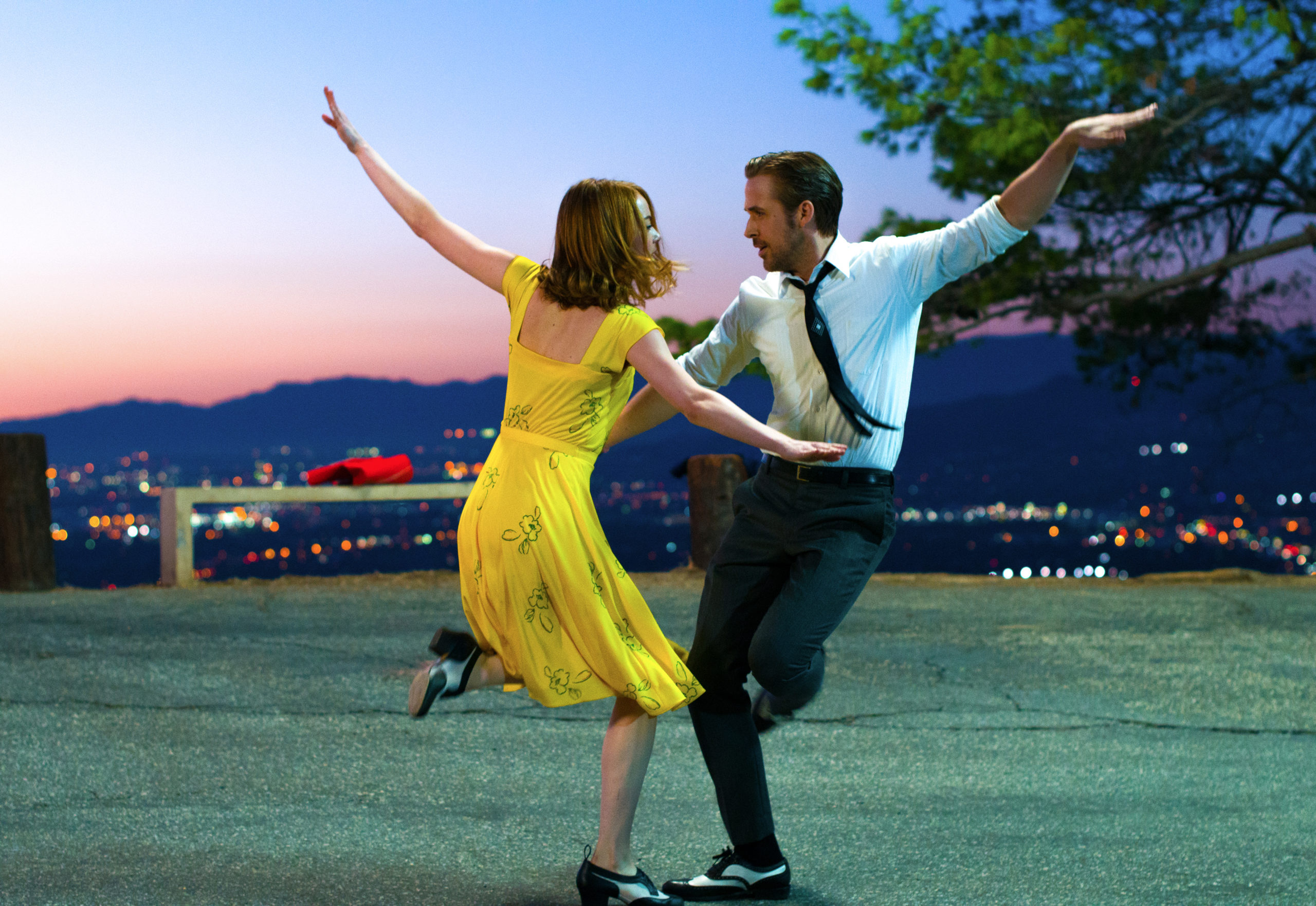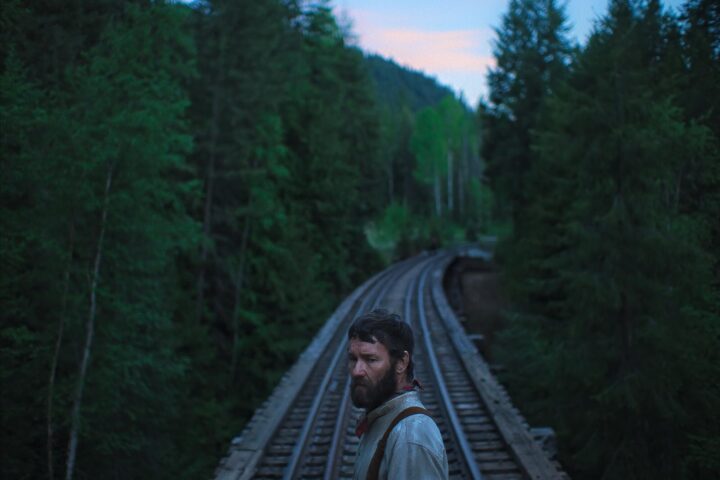A dazzling achievement in technique and emotion cementing the status of visionary young director Damien Chazelle as a modern auteur, La La Land is the most accomplished movie of 2016 and perhaps the most enjoyable, a musical throwback about Los Angeles dreamers pursuing art and love with élan and heartbreak.
The movie is about a pair of them, and boy are they a couple of big things waiting to happen, even if we can see that while they cannot. Mia (Emma Stone) is an aspiring actress who works as a barista on the Warner Brothers lot. So close, yet so far. Sebastian (Ryan Gosling) is a jazz pianist with dreams of his own club, relegated to playing Christmas jingles for hire in a tony downtown restaurant.
Their mutual desires to hit the big time fuel what brings them together and will later separate them. But when they fall in love, it’s the most swooning, romantic vision of Los Angeles paramours in movie memory.
Taking a cue from the melancholy 60s French fantasias of Jacque Demy and Michel LeGrand (The Umbrellas of Cherbourg, The Young Girls of Rochefort), it’s a movie about how great love is always bittersweet, and about the bargains, and messes, we make en route to our dreams.
Right off the bat, Chazelle presents an opening sequence of such exuberance—Los Angeles commuters stuck in gridlocked freeway traffic who bolt from their vehicles for the jubilant number Another Day of Sun—we wonder if the film can go any higher. And then it does. The traffic jam also creates an almost meet cute between Mia and Sebastian, who have a comic, rear-view altercation.
They will meet again soon, and unexpectedly, as Sebastian is fired from his restaurant gig (by now Chazelle regular and Whiplash Oscar-winner JK Simmons) for deviating from customer-friendly tunes. Mia, also in a career funk, has little luck getting call-backs, her auditions frequently dismissed despite her obvious talent, dwarfed by prettier versions of herself and increasingly discouraged by cattle calls.
But her mood changes when enticed by her vivacious actress roommates to hit an industry bash in one of the film’s best numbers, Someone in the Crowd, an exuberantly mood-elevating number that literally stops the show. Naturally, Mia and Sebastian are soon falling for each other and dancing their way into each other’s hearts to a lovely song, City of Stars, which looks like a lock for an Oscar.
A testament to the power of movie stars, in close-up, playing us like pros, Stone and Gosling sing and dance their way around Los Angeles in a daze of starry eyes, tap dance to beautiful views of the Hollywood Hills, cozy up to a late-night screening of Rebel Without a Cause and then find themselves in that picture’s famous Griffith Observatory location, where they literally levitate to the stars.
Paradise finds trouble when Sebastian sells himself out to a hotshot commercial R&B star (John Legend) and begins making big money, on tour, to the detriment of his relationship and future plans. And Mia, who leaves her job and bets heavy on an autobiographical one-woman show, is ripe for disillusionment.
The plot, essentially a no-frills romance between dreamers striving to self-actualize, might seem deceptively simple. But the movie eventually gets somewhere deeper in its candy-colored inquiry into the nature of success and the sacrifices to get there, and the cost of ambition on a boulevard of broken dreams. There’s love and loss and success and failure, self-doubt, and lucky breaks. And a pair of broken hearts.
Stone, transparently revealing resources of disappointment as Mia’s career and relationship falter, is so engaging and warm she threatens to pop off the screen. It’s a performance showcasing her signature sense of humor, and one that finds her in lovely voice as well. Only a curmudgeon wouldn’t flip for her.
And Gosling, who plays straight man (and learned to play the piano for the film) with suppressed emotions and smoldering stares, is a classically handsome, down-on-his-luck good guy, all cocky grin, quiet sensitivity and eyes that hold a close-up, and us.
La La Land, which contains six beautiful songs written by Justin Hurwitz with lyrics by Broadway darlings Benj Pasek and Justin Paul (Dear Evan Hansen), is a movie not content to merely coast on the emotion conveyed in the music. Rather, Stone and Gosling create a dramatically believable couple, all ecstasies and disappointments, against a backdrop part Singin’ in the Rain exuberance and part The Umbrellas of Cherbourg melancholy.
Chazelle caps the film with a doozy of a final sequence, a nearly 8-minute stretch of masterful storytelling, art direction and emotion that imagines what might have been, ranking with the greatest movie musical endings of all time.
La La Land is one of but two pictures this year (Moonlight, the other) reminding us that in an industry of cynical commercial products based on templates and statistics, movies can still have the magical power to transport both their characters and audiences to a place of genuine sincerity and feeling.
4 stars.



